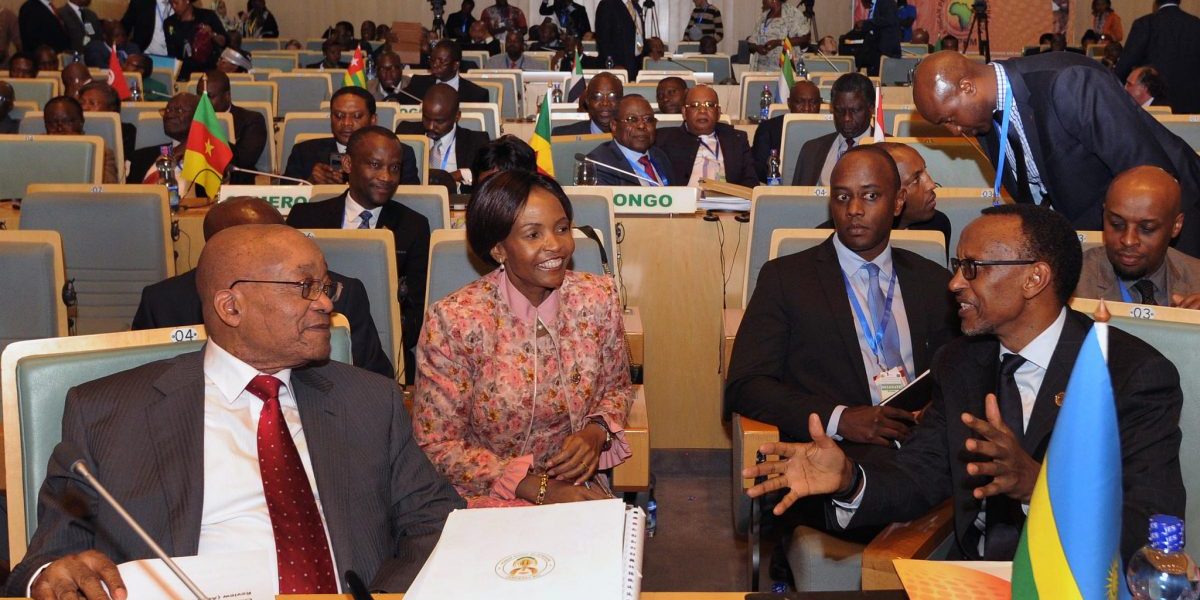Most Forum meetings are traditionally held on the margins of busy African Union Summits, where other business frequently intervenes. In Egypt in June-July, Zimbabwe dominated. This time, the APRM was squarely the focus. But do the benefits of a longer, more in-depth stand-alone meeting outweigh notoriously poor attendance?
The first big news in Benin was that the APRM lost its first member, at least for now. The President of the Forum, Ethiopia’s Prime Minister Meles Zenawi, announced that because Mauritania was suspended from the AU due to the coup in Nouakchott earlier in the year – defying the AU prohibition on unconstitutional changes of government – the state would also be suspended from the APRM (having just joined, in January 2008). Does this perhaps signal more willingness by the presidents to hold one another accountable? When faced with the post-election turmoil rising directly from deeply flawed polls in Kenya in December 2007, it was surprising that President Mwai Kibaki was not put on the spot by his peers at the Addis Ababa APR Forum the following month. He did not attend, and although Kenya’s progress report was merely tabled and not discussed, this was more due to time pressure than a strategic sanction.
This meeting completed the ‘peer review’ discussion of Nigeria that ran out of time in June. According to a statement by special advisor to the president on Nepad, Ambassador Tunji Olagunju, the meeting encouraged other heads of state to emulate ‘best practices’ from Nigeria identified by the Country Review Mission, including setting up a non-partisan presidential advisory body akin to Nigeria’s Council of State; as well as declaring and publishing their personal assets as Nigerian President Umaru Yar’Adua had done in the interests of transparency.
Burkina Faso’s report was also presented, which now brings to nine the total number of states reviewed, joining Ghana, Rwanda, Kenya, Algeria, South Africa, Benin and Uganda. That makes almost one-third of the acceding states – notable progress from a slow start.
But a quorum at Forums decoupled from AU Summits is always problematic. In Abuja in mid-2005, over forty presidents chose to travel to China for a meeting; just six went to Nigeria. This time, there were more no-shows. Disappointingly, of the 28 leaders expected, apart from the host President Yayi Boni of Benin, and Meles of Ethiopia, only the presidents of South Africa and Benin’s neighbours Togo and Burkina Faso pitched up, plus the Rwandan prime minister and Gabonese deputy president. Other appeared to rather choose recent events such as the UN General Assembly, the Francophone Summit in Quebec, or the joint conference of the Southern African Development Community (SADC) and the East African Community (EAC). What does this say about priorities?
A two-day meeting allowed, in theory, more time to reflect on lessons from early ‘pioneer’ countries. The following cross-cutting issues (to use APR parlance) were slated for discussion: management of resources (particularly land); African elections; corruption; managing diversity and preventing xenophobia; and the indigenisation of judicial courts (Rwanda’s gacaca court system). But the poor attendance by the top dogs meant that South Africa’s new President Kgalema Motlanthe, the newest member of the Forum, was the only President to make a speech on the land issue. The Kenyan Focal Point, the Minister of Planning, read another paper on land on behalf of President Kibaki (absent once again). Motlanthe argued that unresolved land questions set back developmental efforts, land is heavily tied to food security and trade issues, cautioned about biofuels displacing food production, and said that bold new thinking was needed. But he said, ‘We also have to accept that measures aimed at land reform are likely to encounter resistance from groups that have historically benefited from the status quo. For this reason, land reform measures can only succeed on the back of a comprehensive and popular democratic programme.’
In addition, Algeria and Angola sent papers on elections. The Forum decided that in future, only heads of state present in person should make formal inputs – a diplomatic carrot (or is it a stick?) – to boost attendance.
Two other vital administrative issues were up for discussion in the closed-session meeting: the audit report of the APRM for the 2003-2006 period, and the long-overdue reconstitution of the APRM Panel of Eminent Persons. At this point, no official communiqué has been issued, but attendees confirmed that Dr Chris Stals from South Africa has retired (in June 2008), and Madame Marie-Angelique Savané from Senegal – the Panel’s feisty first chairperson – will also not continue serving. According to the Benin meeting’s website, the tenure of Professor Adebayo Adedeji as chairperson was also meant to have come to an end. The website stated that Forum members would select a committee at the upcoming 10th Forum meeting in Addis in January 2009 ‘in order to outline the election methods in July 2009, of the newest members of the Panel.’ This suggests that the process will continue to drag on for another eight months at least. How will this affect countries like Mozambique that have been awaiting their Country Review Mission for several months? These delays cause public and media interest to flag as the momentum of the process is dissipated.
It was previously agreed that the reports on implementation of National Programmes of Action for Ghana, Rwanda, Kenya, Algeria and South Africa would be deferred to January 2009, so as not to be prejudiced by a crowded agenda. While this is sensible, further delays stress the need for the mechanism to develop a robust, ongoing NPOA monitoring and evaluation system, as more countries move deeper into the process. If not, the mechanism risks becoming a victim of its own success. Tracking progress and highlighting achievements is currently almost entirely left to the national level. Transparency would be enhanced if these reports were routinely lodged on APRM websites and distributed in hard copy as well, including to national and regional parliaments, and to the media.
Overall, the idea of a longer, stand-alone Forum is a good one, but not if presidents don’t play ball. Like everything in this remarkable process, it needs political will, belief and personal commitment to make it really work.







